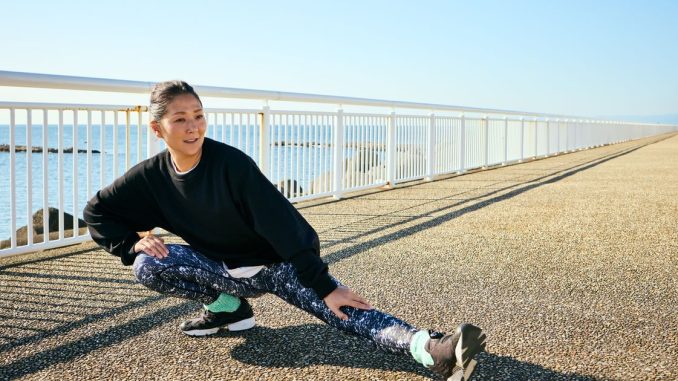
From broken bones to torn muscles, orthopedic surgeons have seen it all. Oftentimes, a seemingly harmless habit or neglecting your bone health can lead to bodily harm.
“The decisions you make now can prevent injuries from happening in the future,” said Dr. Pamela Mehta, a board-certified orthopedic surgeon at Resilience Orthopedics and member of the FIGS advisory board. However, there are many ways to prevent injury and keep your bones healthy and strong.
Take it from orthopedic surgeons. We asked them to share the behaviors they would never do in the name of their bone and muscle health. Here’s what they avoid:
They don’t participate in activities when they’re in pain.
Pain in your bones and muscles could be an indicator of a possible injury. “By participating in activities, especially sports, with pain in your bones, you could be making a potential injury worse,” Mehta said.
For instance, if you have pain and swelling in your knee joint, pushing through the pain can create nagging knee problems. It can further strain the muscles around your knee joint, leading to a number of overuse injuries, Mehta added.
If you have had longstanding pain in your muscle, tendon, ligament or joint, pause any physical activities and see a provider right away.
They avoid lifting weights without proper form.
According to Dr. Elizabeth G. Matzkin, a board-certified orthopedic surgeon and chief of women’s sports medicine at Brigham and Women’s Hospital, lifting without proper form can lead to injury. This includes strains, tears and sprains of the muscles, ligaments, bones and joints.
“Proper form ensures that the muscles intended to bear the load are optimally challenged while protecting the other muscles and joints,” Matzkin said. “The better your form, the better your results and less likelihood of injury.”
To build strength efficiently, consider decreasing the amount of weight used to start. If you’re not sure if you’re doing an exercise correctly, seek guidance from a personal trainer or fitness specialist.
They avoid only doing one type of exercise.
According to both Matzkin and Mehta, one of the habits they personally never do is skip cross-training. Cross-training ― combining exercises to workout various parts of the body ― is beneficial as it improves balance, flexibility, skill and agility.
It also prevents overuse injuries, which happens when too much stress is placed on one part of the body. “We see overuse injuries in all ages ― from the youth soccer player to the older pickleballers. Up to 50% of youth sports injuries are due to overuse injuries,” Matzkin said.
They don’t skip physical therapy.
If you undergo surgery for a bone or muscle issue, it is important to adhere to physical therapy ― a necessary post-operative protocol.
“There’s literally no point to doing surgery on a patient if they will skip physical therapy post-operation,” Mehta said.
Not doing physical therapy post-op can lead to the buildup of scar tissue, Matzkin said.
When it comes to recovering after surgery, physical therapy can help with pain, swelling and inflammation. If there’s anything interfering with your ability to commit to physical therapy, it’s crucial to discuss with your orthopedic surgeon right away.
They don’t overlook appointments with specialists.
Neglecting a known injury can lead to additional problems. Even though you can initially discuss it with your primary care provider, make sure to also visit an orthopedic surgeon who can discuss a range of specialized treatments with you to improve your quality of life.
“Orthopedic surgeons could intervene at any given point during the process especially when non-operative management failed to improve symptoms and the patient’s quality of life has been dramatically affected,” said Dr. Mengnai Li, a board-certified orthopedic surgeon and associate professor at Yale School of Medicine.
Don’t wait till your annual physical or for the injury to get worse, see a specialist away. Getting treatment as soon as you can is crucial to your bone health.


Be the first to comment